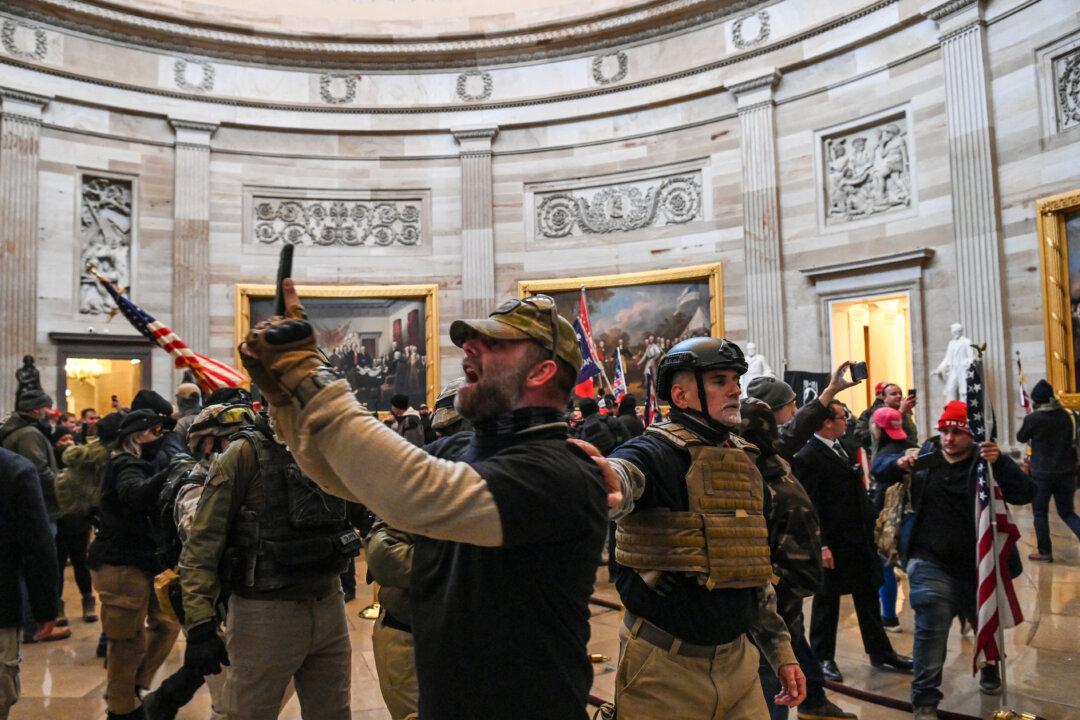The U.S. Department of Justice appealed the Jan. 6-related prison sentences given to eight members of the Oath Keepers, concluding that a federal judge in the District of Columbia was too lenient.
Assistant U.S. Attorney Jeffrey Nestler filed notices of appeal in the criminal cases of Oath Keepers founder Elmer Stewart Rhodes III and Oath Keepers Kelly Meggs, Jessica Watkins, Roberto Minuta, Kenneth Harrelson, Joseph Hackett, David Moerschel, and Edward Vallejo.





